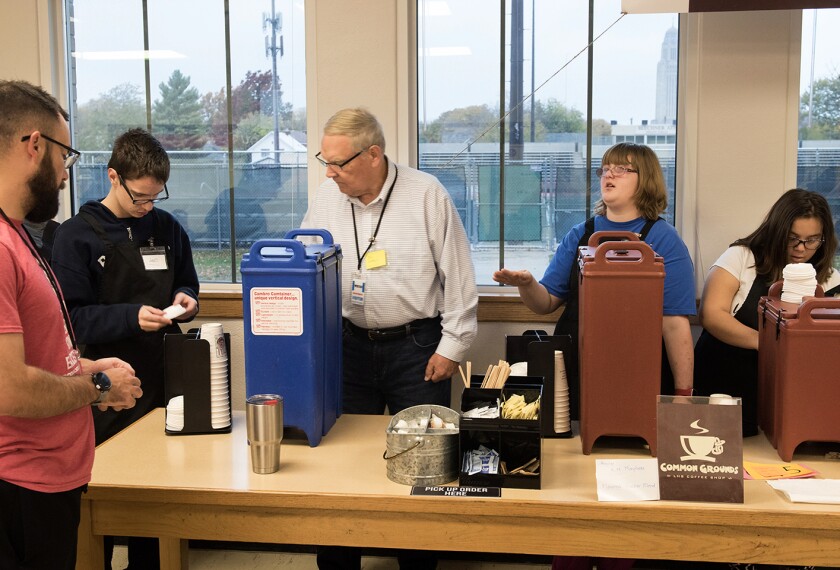When a speech therapist suggested last fall that it was time for 4th grader Sloan Brickey to use a device to help convey her sometimes-garbled words, the first option was a 2-foot-long board that offered a choice of six words at a time.
Sloan, 11, has Down syndrome and already sticks out enough at her elementary school in Powell, Tenn., says her mother, Kelly J. Brickey.
So Brickey did some research and found a different solution: a list of applications for the Apple iPad that work well helping children with autism communicate.
Sloan’s mother happened upon a tool that has made its way into schools in big numbers 18 months after its debut. But iPads and other tablet computers are more than a novelty for many students with disabilities, including deaf students in Pennsylvania, youngsters with autism in Southern California, and children like Sloan with Down syndrome. They are tools that pave a fresh path to learning.
For examples of special education applications made for tablet computers, see “Special Ed. Apps,” Oct. 19, 2011.
A combination of Down syndrome and apraxia—a sort of disconnect between the brain and the mouth that results in slow or jumbled speech—makes it difficult for Sloan to form words that others can easily understand.
In the past, after a few unsuccessful attempts at making someone understand what she was saying, her mother says, Sloan was likely to stamp her foot and leave the room.
Now, Sloan is using a tool that attracts other students, has boosted her self-confidence, and offers a means of communicating in greater depth with peers, her mother says.
Using an application on the iPad called Proloquo2Go, Sloan can scroll through pictures or choose from phrases and sentences she uses often, and the computer speaks for her.
Tablet computers are useful for students with disabilities because some of the applications available for them easily and cheaply replace bulky, expensive older forms of assistive technology. For children with poor fine-motor skills, the touch-screen design is easier to use than a desktop computer with a mouse or a laptop with a touchpad. The screen’s size makes the gadget user-friendly for students with vision problems.
“For a child who may be a little slower learner, struggling with reading, has an arm that doesn’t work, the [tablet-style] computer has all these modalities, sound and touch. The technology can compensate for the special-needs kids in a way that traditional media cannot compensate,” says Elliot M. Soloway, a University of Michigan professor of education as well as of electrical engineering and computer science.
The machines offer a sense of independence many children, especially those with disabilities, may never have experienced before.
But he cautioned schools from falling in love with the iPad before looking into other tablet computers on the market that may cost less. “Schools are getting killed right now. To buy a very expensive device when you’re really trying to get finger-touch technology seems to be irresponsible. They all have app stores.”



